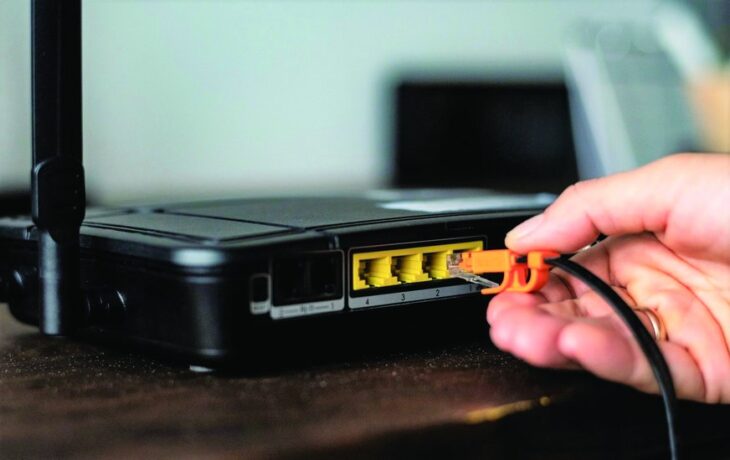When you sign your broadband contract, you’re committing yourself to payments for the length of that agreement. It is legally binding and should be taken as such. As well as your responsibility to make sure you’re signing in good faith and know what you’re signing up for, you do have certain rights. It is these broadband contract rights that we will be concentrating on here.
If all goes well, you should never have to consult your contract or complain about your service. If things don’t go so well, you may like to know what your rights are and what you can and cannot do within a broadband contract. In this article in collaboration with Broadband Genie, we’re going to discuss some typical scenarios broadband customers find themselves in and discuss your contractual obligations and rights.
This guide contains information on general contract rights and should not be regarded as legal advice. Consult a solicitor or Citizens Advice if you need that.
Contents
1. You are being overcharged by your provider

img source: needs.net
When you signed your broadband contract, you agreed to pay a certain price for your service. That price will include any extras such as call costs, out of allowance usage, extra features or rental of security software.
If you are being charged more than you should be you should gather your evidence and approach the provider. Any unreasonable charges or charges that should not be there can be challenged. Your provider has an obligation to investigate and refund if those charges are in error.
2. Your price has increased during your contract
This is a very common situation that has very clear guidance. Providers are permitted to add an inflationary increase to broadband contracts at any time. However, that increase must be linked to inflation and you must be notified in writing in advance of that increase. Typically 30 days in advance by letter.
If your bill goes up by more than inflation you have the right to challenge that increase and even cancel your contract without penalty.
3. You keep suffering broadband faults or downtime

img source: pcrevue.sk
You are paying for a service and that service and any equipment used to access that service must be of satisfactory quality, fit for purpose, be as described and meet a proper standard of workmanship. Anything that prevents you from accessing the service you’re paying for that isn’t your fault can be classed as breach of contract.
Any issues that prevent you from accessing the internet that are not your fault can be compensated for. Any equipment failure, including the modem that is not your fault, can also be compensated for. This is usually in the form of free days equal to or exceeding the time period of that fault but is usually at the discretion of the provider.
4. Your internet is slower than advertised
This is another common problem with broadband and something Ofcom has strengthened consumer rights against. If your broadband speed is close to what was advertised but falls slightly short, you have no grounds to complain. If the speed falls significantly short of what was promised and what is on your contract, you do have the right to complain and insist the provider fixes the issue.
You will need to assess your internet speed first. While there are tools online to do this, most providers will not accept them as evidence. You may need to depend on their own tools to assess your speed. Discuss it with them when you contact them.
If your provider does not agree that your speed is too slow, you have the right to complain to Ofcom and perhaps cancel your contract if Ofcom sides with you.
5. You want to leave your contract early

img source: certifind.com
Broadband contracts typically run for fixed periods of 12, 18 or 24 months. Your provider may have early cancellation fees for leaving your contract early so consider very carefully before leaving.
If you want to leave because the service falls short of what you were led to expect, you may be able to leave your contract early. You need to provide the opportunity for the ISP to remedy the situation first but if no agreement can be made, you may be able to leave early without penalty. However, you should always follow their complaints procedure and wait until the ISP has confirmed you can cancel without penalty, otherwise you will be charged.
If you need to leave your contract early for other reasons such as moving house, you don’t need the service anymore or want a different tariff or provider, your ISP can choose to charge you an early cancellation fee. It is worth discussing your situation with your provider before canceling as they may come to an arrangement if you approach them first. They have every right to charge you early cancellation if they want to though.
6. How to complain to your provider

img source: moneysmart.co.za
If your broadband service falls short of what you would expect, you have every right to complain to your provider. We have a few practical tips that will help you achieve the outcome you want.
Consider your issue
Is your complaint something the ISP can reasonably do something about? Was it their fault? Is your complaint about something that could have been avoided by any action you could have taken? Is it just about slow broadband speeds? You have a right to complain about your service but you need to consider whether it is legitimate or not first.
Gather your evidence
Record any charges, faults, speed issues or downtime. Record the when, how long and when your service returned to acceptable limits. Consult your bills for extra charges and gather all the evidence necessary to back up your complaint.
Contact customer services

img source: jingrocket.com
Once you have your evidence, it’s time to talk to your provider. Call the customer services line and outline your problem. Be calm, be factual and discuss it with the agent. Present your evidence and allow the agent time to respond, investigate and offer a resolution.
Do not demand anything just yet. Allow the agent time to assess your complaint and work it out themselves. They may offer more than you wanted in compensation!
Escalate if necessary
If the agent is unable or unwilling to assist, you have the option to escalate. You must have completed the initial contact and have given the provider an opportunity at early resolution first. If you’re not happy with the response, escalation means the issue is given to someone further up the chain to assess.
This is usually a manager or dedicated escalations team. They have more power and more time to assess your situation and remedy it if they think it appropriate.
Accept the resolution or take it further

img source: nen.press
If your provider comes back with a solution, compensation or other resolution and you’re happy, accept it. If you’re not happy with their answer, request a deadlock letter. Use that letter in any contact you have with CISAS or Ombudsman Service: Communications.
Check this page to see which service your broadband provider subscribes to and contact them direct. It can be a long process but the ombudsman is independent and will investigate as far as they can.
If the ombudsman agrees with your complaint, the provider will be obligated to make things right. If the ombudsman does not agree, that is the end of the process. There is no right of appeal.
